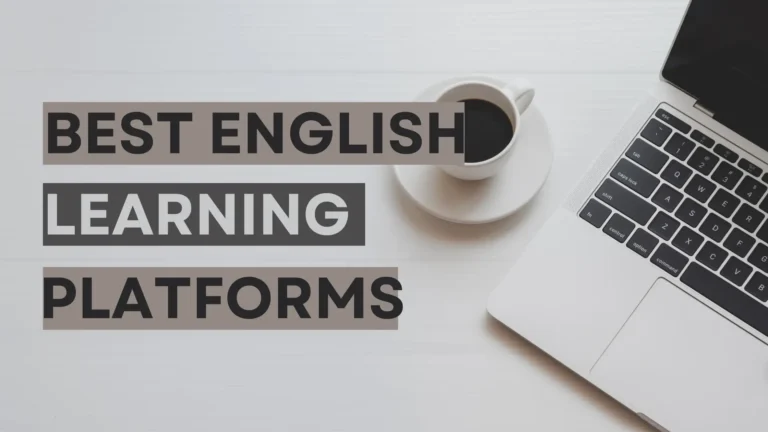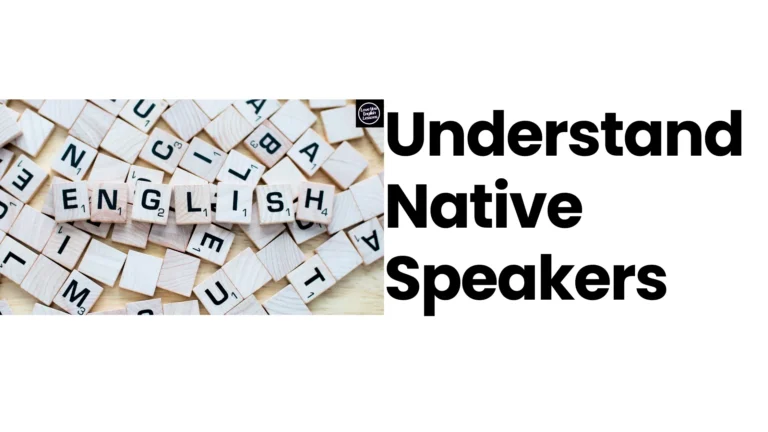How to Speak English Fast and Easily
Hello everyone,
If you want to speak English well, you need to practice speaking it regularly.
The more you speak, the faster and easier it will become over time. Here are some tips to help you speak English quickly and easily:
Set a Goal
First, decide why you want to improve your English-speaking skills.
Do you need to speak English for work?
To communicate while traveling?
To make new friends?
Having a clear goal will motivate you.
Your goal could be something like “I want to speak English fluently so I can get a job at an international company” or “I want to speak easily with English speakers when I go on vacation.”
Focus on the Right Skills
To speak English fast and easily, you need to work on a few key skills:
Vocabulary – Learning common vocabulary words you can use in everyday conversations.
Pronunciation – Practicing how to pronounce words properly so others can understand you.
Fluency – Speaking smoothly without having to constantly stop and think about what to say next.
Grammar – Understanding basic English grammar so you can put sentences together correctly.
Don’t try to master everything at once. Start with the skills that are most important for your personal goal.
Learn Vocabulary From Context
One of the best ways to learn new vocabulary words is from context clues.
This means reading or listening to something in English and trying to figure out the meanings of new words from how they are used.
For example, if you read “They were stuck in terrible traffic on the highway,” you could guess that “traffic” means the vehicles driving on the road.
Looking at how the word is used provides helpful context clues.
Reading easy books, watching shows with subtitles, and listening to English podcasts are great ways to pick up vocabulary from context.
Focus on Useful, Common Words
Don’t try to memorize a huge vocabulary right away. Start by learning words you will actually use frequently.
Some examples of common, useful vocabulary include:
Greetings: Hello, hi, good morning
Questions: What, where, when, why, how
Numbers
Days, months, dates
Common verbs: be, have, do, go, get
Describing words: big, small, good, bad
Learn words related to your interests and daily life – things like food, hobbies, work, and family.
Those words will be much easier to remember and use.
Use Flashcards
Flashcards are a simple but powerful tool for learning and practicing vocabulary. You can make physical cards or use a flashcard app.
Each card should have an English word on one side and a simple definition or translation in your native language on the other side.
Review your flashcards frequently by going through the deck and trying to remember what each word means. The more you practice, the faster you’ll be able to recall words.
Master Pronunciation
Proper pronunciation is key for speaking English clearly. Work on listening carefully to how words are pronounced, then practice saying them out loud.
Focus on English sounds that don’t exist in your native language, like “th” sounds in words like “think” and “bathe.” Those can be tricky at first.
Watching videos of mouth movements, recording yourself, and getting feedback can all help improve your pronunciation over time.
Listen and Repeat
A great way to improve your pronunciation and overall spoken English is to listen and repeat out loud.
Choose audio like TV shows, YouTube videos, podcasts, or audiobooks and repeat what you hear.
Start by repeating short phrases, then work your way up to full sentences.
Focus on copying the tone, pronunciation, rhythm, and speed. This trains your mouth muscles and helps English start to feel more natural.
If a word or phrase is too fast, re-listen and repeat it again and again until you can keep up.
With practice, you’ll be able to better understand and speak at a native-like pace.
Explore more topics:
- 4 Short Moral Stories for Kids
- 4 Amazing English Short Animal Stories
- Learn English through Stories: 4 Short English Stories
- 4 Short English Stories: Learn English through Stories
- Short English Stories: Learn English through Stories
Use Background Audio
Immerse yourself in English audio as much as possible – even when you aren’t directly practicing.
Having English music, podcasts, radio programs, or shows playing in the background exposes you to the flow and rhythm of the language.
Your brain will start unconsciously picking up on common sounds, phrases, word combinations, and conversational patterns.
This passive listening makes the language feel more familiar, which helps you speak faster.
Just be sure the audio is understandable for your level and not too distracting if you need to focus.
Talk to Yourself
Don’t be afraid to practice speaking English out loud to yourself! This may feel strange at first, but it’s one of the best ways to improve fluency.
Talk about your day, describe objects around you, tell stories from your life – whatever you want. The key is producing extended streams of speech, without stopping or thinking too much.
Speaking continuously will help your brain get better at recalling and combining words quickly.
You’ll become more comfortable thinking in English.
If you make a mistake, don’t stop to correct it. Just keep going. Mistakes are normal and the fluency practice is what matters most.
Get a Language Partner
Having real conversations in English is crucial for taking your speaking to the next level. But it can be intimidating, especially at first!
Find a language partner who is also learning English and you can practice together.
Taking turns having conversations removes the pressure and fear of making mistakes in front of fluent speakers.
Be patient, speak slowly, and help correct each other kindly. Conversations with a partner at a similar level provide high-value practice for gaining confidence and fluency.
Use Conversation Resources
When you feel ready, look for resources to have conversations with native-level English speakers or tutors.
This could be through a language app, taking an online course, joining a local conversation club, or finding a conversation partner on a site like Conversay or italki.
Follow conversational lessons and prompts to practice asking and responding to a variety of common questions and scenarios.
The tutors can provide feedback to help fix errors.
Regular conversations like these will rapidly increase your speaking speed, comprehension, and ability to respond naturally without overthinking everything.
Watch Yourself
It may feel awkward at first, but recording yourself speaking English is extremely valuable.
Video is best as you can monitor your body language, but audio works too.
Watching and listening lets you objectively assess your fluency, pronunciation, filler word usage, speaking rate, and any other problem areas.
It reveals mistakes and unnatural patterns you can’t necessarily hear while speaking.
Use the recordings as motivation – challenge yourself to spot ways to sound smoother and more native-like each time.
With this awareness and conscious practice, speaking easily will start feeling natural.
Celebrate Small Wins
Learning to speak English fast and fluently is a long journey, not something that happens overnight.
It requires dedicated practice over time.
Celebrate small wins and milestones along the way to stay motivated.
For example, give yourself a treat when:
– You have your first conversation lasting over 5 minutes without getting stuck
– You go a whole day speaking only English
– Someone compliments your improved English
– You understand a movie without subtitles
Positive reinforcement and acknowledging your progress will keep you going through the occasional plateaus and frustrations every language learner faces.
Be Patient and Persistent
Ultimately, the biggest keys to speaking English quickly and easily are patience and persistence.
Consistent daily practice is far more effective than cramming for long periods occasionally.
Set a realistic bur challenging study schedule that works with your life.
Aim for at least 15-30 minutes per day of active practice through your preferred strategies.
It takes most learners months or years of regular conversational practice to develop a native-like command of spoken English.
But the payoff is worth it!
Stay positive, keep putting in the reps, and fluency will come.
____________________






